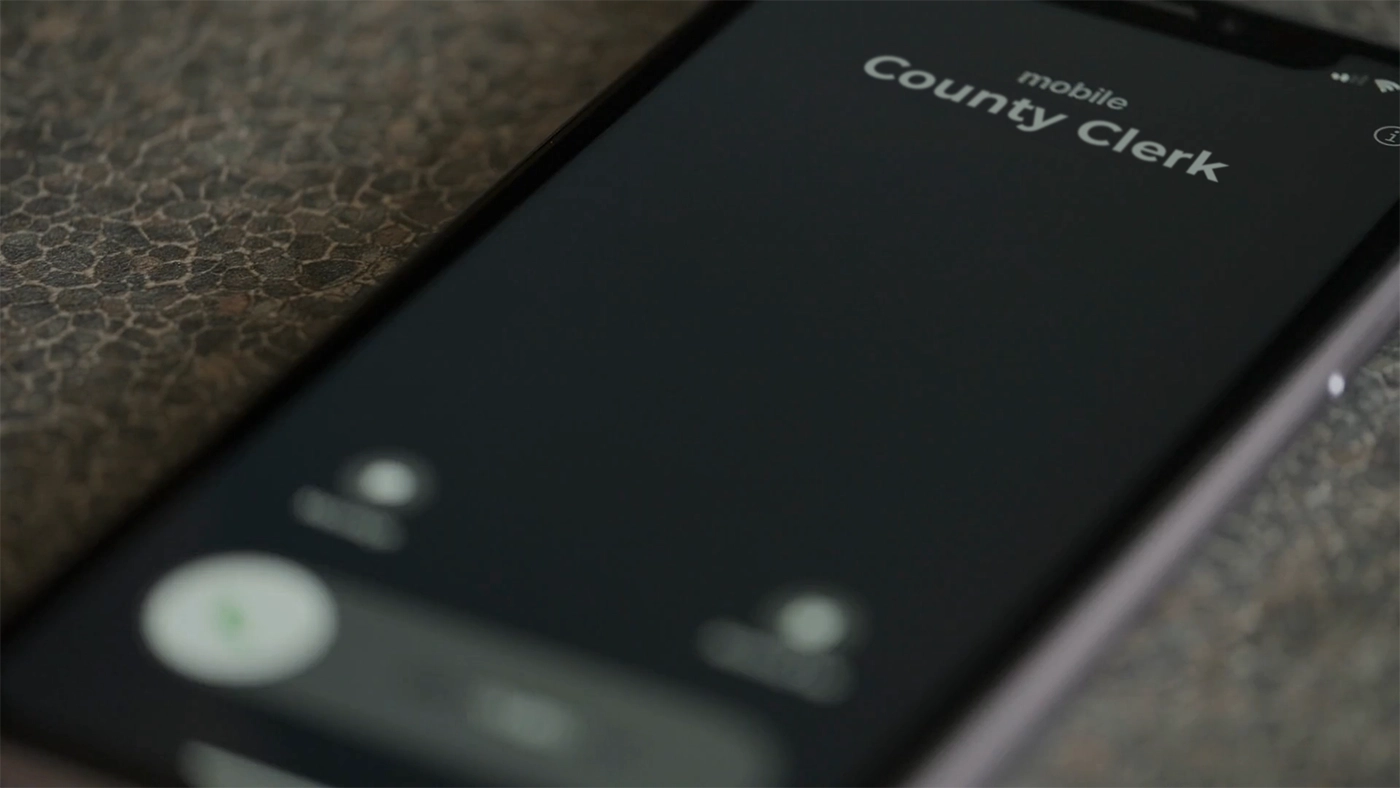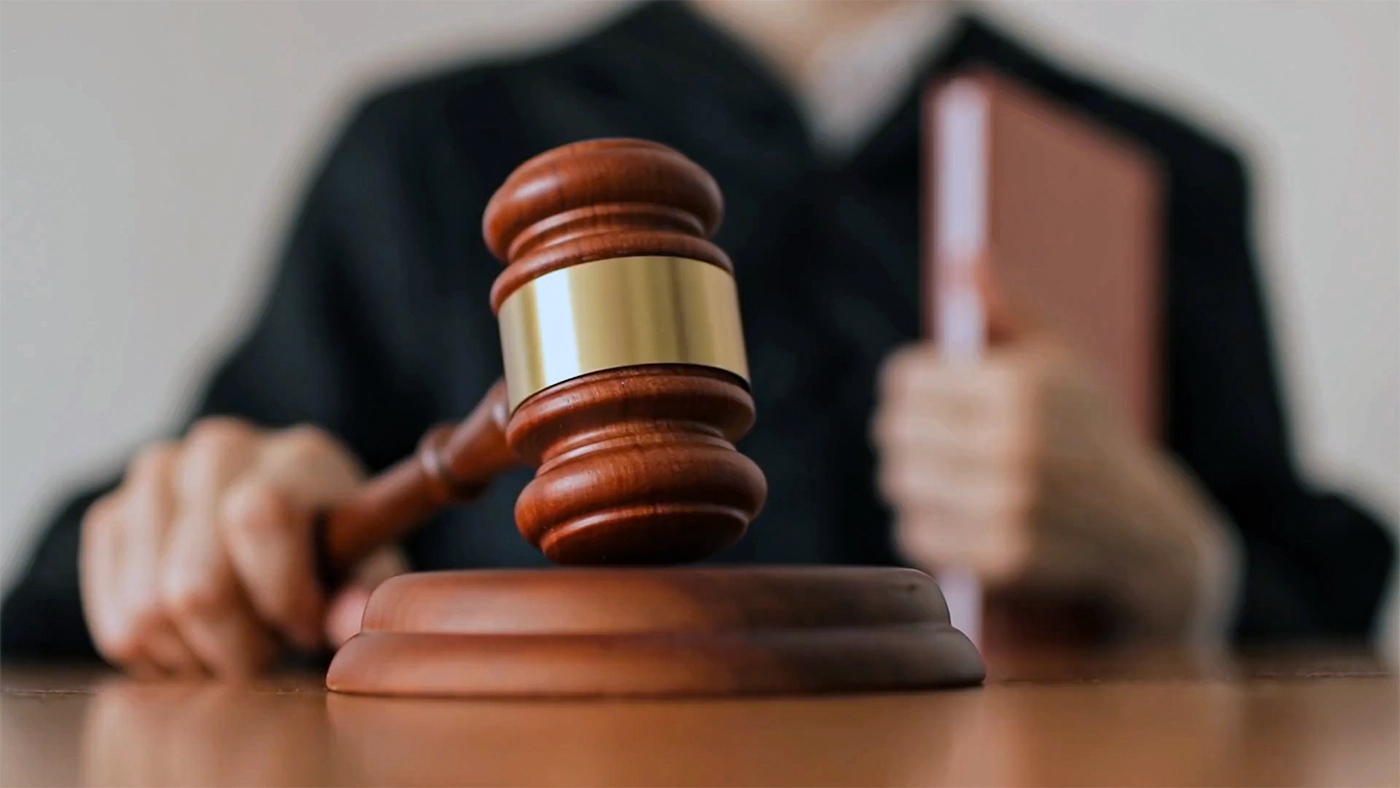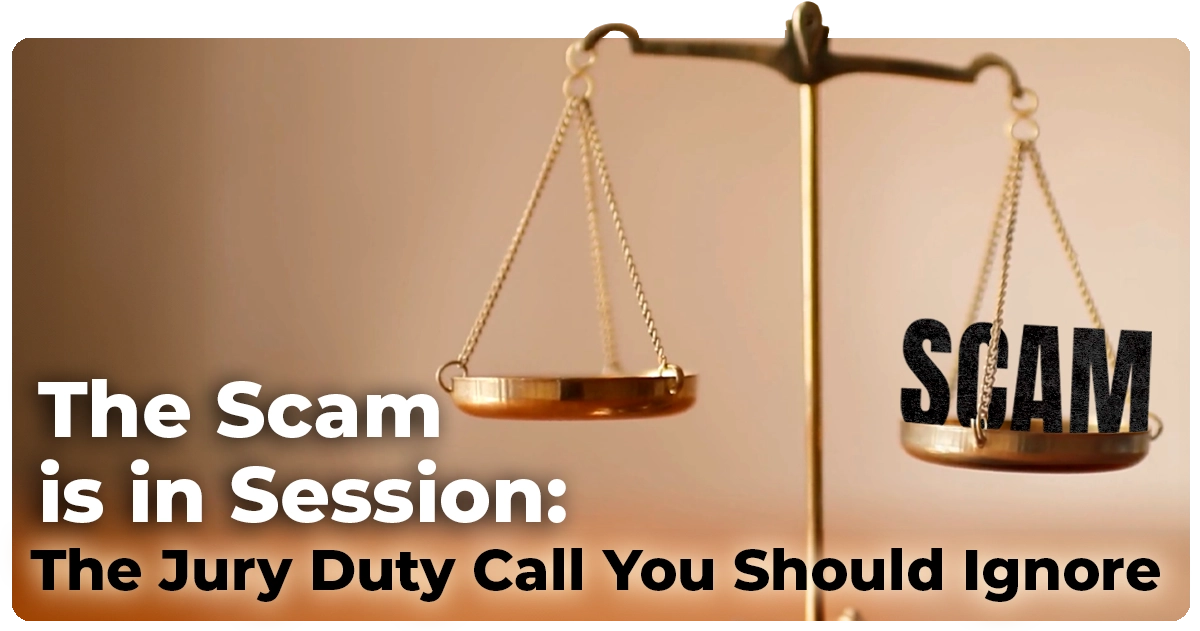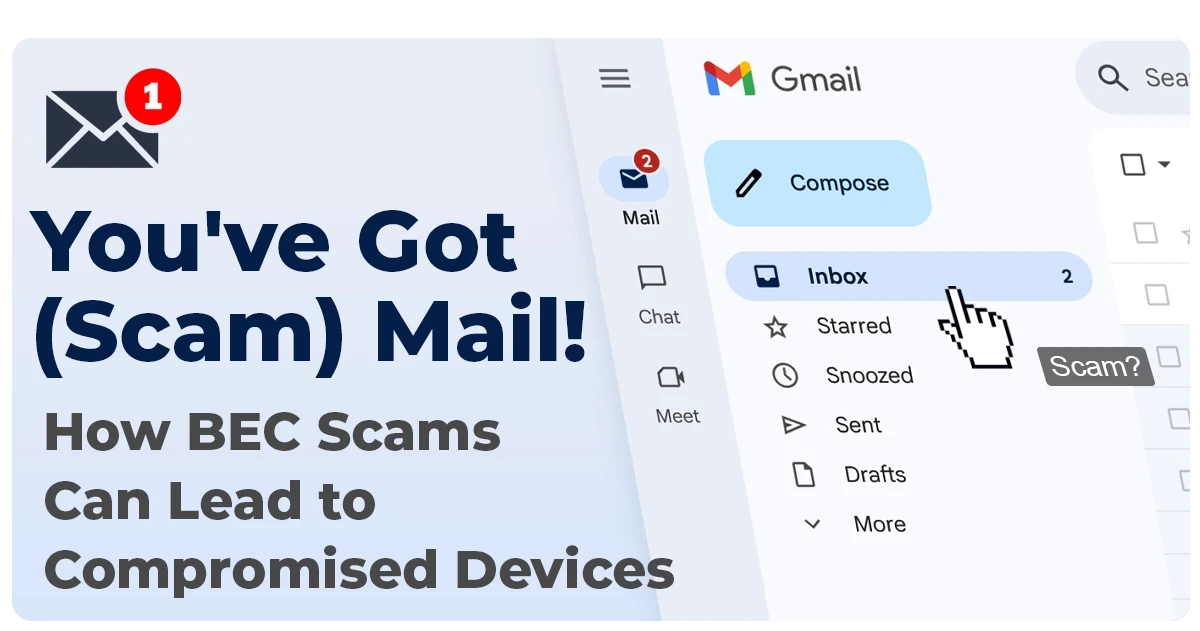The jury duty scam has been making the rounds for nearly two decades. It’s a scam that doesn’t start with a shady link or a too-good-to-be-true offer. Instead, it begins with something that feels official: a phone call from your local sheriff’s office or court services. The caller sounds official, knows your name, and maybe even your address. They sound calm and professional, but then they drop the bombshell: you’ve missed jury duty.
You’re now facing heavy fines, failure to appear and contempt of court charges, and possibly even an arrest warrant – unless you immediately pay the fine to resolve the issue.
This is the setup for the jury duty scam. The situation is completely fake, but it works because the story sounds just plausible enough to make you panic into making a quick – and costly – decision.
How the Jury Scam Works
Jury duty scams are a type of impersonation scam where the scammer pretends to be law enforcement or a court official, often using real titles like sergeant, lieutenant, or captain. They might even spoof the number of your local court or sheriff’s office to make the call seem like it’s coming from there.
What makes this scam so convincing is the surprising amount of personal detail the scammers include. They will gather publicly-available data to make their story sound more convincing, collecting information from data breaches, people search websites and public records, and social media profiles.
A quick search of your name and number online often reveals enough details for the scammer to tailor their pitch specifically to you. If you hear your real name and the name of a nearby courthouse, chances are you’re going to be paying attention to what they say.

They may also throw around legal terms like “FTA” (Failure to Appear), “COC” (Contempt of Court), “civil resolution,” and “bench warrant,” to reinforce their credibility. You’ll then be given an ultimatum: pay now or face serious legal consequences and arrest.
But, lucky for you, they’ll “help” you avoid a criminal charge and arrest if you pay a fine upfront. They may even promise that the fine is reimbursable once you show up for your rescheduled jury duty.
On the Record: Jury Scam Encounters
Here are some experiences submitted to our investigations team.
“Sergeant Anthony claimed I was cited for failure to appear in court and contempt of court. They used my full name, address, even my phone number. It definitely made me pause, but I was suspicious because I would remember signing some commitment that said I’d appear for ‘Federal Grand Jury.’ I played along out of curiosity, writing down the ‘charges’ (FTA and COC) and the address of a real courthouse nearby. They tried to scare me by giving me a choice between a "criminal" and a "civil" proceeding – in other words, get arrested and pay bail, or pay a fine that would be "reimbursed" after keeping my commitment to the rescheduled appointment. But when they said I couldn’t pay in person at the courthouse any more due to ‘fraud’ and started talking about a kiosk and receipts, I hung up.”
Another person was pulled into the scam even further, nearly driving to the courthouse under the threat of arrest.
“They said I had missed jury duty along with 13 other people and needed to go down to the courthouse immediately. The caller wouldn’t let me hang up and said they’d send law enforcement to arrest me if I did. When I got in the car, that’s when they told me I’d need to pay a $1,000 fine. If I paid at the kiosk in the courthouse, they’d have to hold me for 24-48 hours, but I could avoid that by using a ‘voucher’ from Walmart. I started asking for badge numbers, and they had a ‘supervisor from the court’ call me to verify. They even asked for my car make and model for the supposed arrest. That’s when I decided to take my chances and just show up at the courthouse without paying anything.”
Sometimes, the scam takes a nastier turn with scammers using racial manipulation and relentlessly pressuring and harassing victims into complying.
“The caller pretended to be a police captain and told me I sounded articulate and smart ‘for an African American woman.’ He said I had to pay to resolve the warrant and told me I couldn’t tell anyone about the call. They kept calling and threatening me and also called my mother trying the same scam!”
Others reported receiving threatening voicemail messages with the same scam tactic:
“My wife got a voicemail from a man claiming to be Sheriff Brian Turner from the ‘Sheriff’s Office of Civil Services’ that said she had missed federal jury duty and needed to call him back immediately or she’d be in serious trouble.”

Why It Feels Real
Jury duty scams feel convincing not only because of the personal details they know about you or the legal terms they use. A bigger factor is the power dynamic the scammers create by posing as law enforcement or court officials. They know that these roles carry weight and most people instinctively comply when they think they’re dealing with law enforcement, especially when it comes to something serious like a missed jury summons.
Scammers also count on peoples’ limited knowledge of how courts actually handle missed jury duty. Because the caller pretends to be a court official or law enforcement, many people would hesitate to question or challenge them, even when the demands sound extreme. After all, if the call is coming directly from “the court,” why would the information be wrong?
But, if you familiarize yourself with the real procedure, scammers don’t stand a chance.

What Actually Happens If You Miss Jury Duty
You’ll get a letter in the mail. If you miss jury duty, the court typically sends you a formal notice by mail, not a threatening phone call.
You’re asked to reschedule or explain. Federal Courts may serve you with an Order to Show Cause. State courts can have their own rules and penalties. Many first-time no-shows are given a chance to reschedule if they explain why they missed their summons, for example if you forget or made a mistake and showed up on the wrong day.
There’s always a process. If any fines or penalties apply, they’re handled through the court system, not over the phone, and never immediately. The Administrative Office of the U.S. Courts states fines will only ever be imposed AFTER the individual explains their failure to appear to a judge.
You won’t be arrested out of nowhere. Arrest warrants for jury duty no-shows are extremely rare. If they do happen, they follow a documented legal process, not a surprise phone call.
You can always call to verify your status with your local court clerk’s office or the U.S. Marshals Service office. Courts are transparent and will always encourage you to call or check your status online.

How To Protect Yourself
In the jury duty scam, you’re pressured to act fast with no paperwork, no due process, and no chance to verify or explain a failure to appear. You’re told you can’t hang up, and you’re threatened with arrest if you don’t immediately comply. Courts don’t handle legal issues by phone like this, and they’ll never ask for a payment on the spot.
Don’t trust caller ID. Jury duty scammers can spoof caller ID to make it look like your local police department or courthouse is calling.
Hang up if you feel pressured or threatened. You don’t have to stay on the line, even if they demand it. Get a case number, hang up, and take a moment to collect your thoughts.
Verify with the court directly. Use official phone numbers from the court or police department website. Don’t rely on any number given to you by the caller.
Never pay fines over the phone. Courts do not accept payment via gift cards, prepaid cards, money wire services, or cryptocurrency.
Talk to trusted friends or family. Scammers often pressure you to keep the call a secret, isolating you so they can maintain control. Sharing the situation can help you stay grounded and get a fresh perspective.
The Verdict: It's a Scam

The jury duty scam works because it taps into a common fear – breaking the law without knowing it. But real courts follow real procedures if this happens. They will never call to collect fines, threaten arrest, or accept cryptocurrency or gift cards as payment.
The scam only works if you believe the story, and now that you know the truth, the whole truth, and nothing but the truth, you hold the advantage. The ruling is clear: it’s a scam, and you owe the caller nothing. Case closed.
- The Seraph Secure Team




